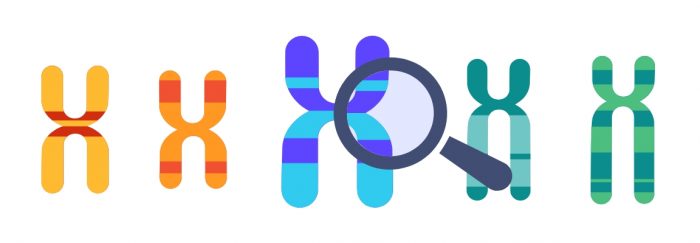Blood types are classified according to characteristics present in the outer layer of red blood cells and in the blood serum.
There are more than 30 blood type classification groups in humans, but the two most important are the ABO group and the Rh group because they affect the vast majority of the world’s population. These blood types are defined by the antigens that are attached to the red blood cells or erythrocytes in the blood.
Therefore, the ABO classification is characterized by:
- People of group A have antigen A
- People of group B have antigen B
- People of group AB have both antigens
- People of group 0 have no antigen
The Rh classification is characterized by:
- Rh+ people have antigen
- Rh- people have no antigen
The blood group, like most characteristics, is inherited from the parents. Blood group A gives A types, B types B and group 0 types 0, with A and B groups being dominant over 0. Group 0 positive is the most frequent, especially among Hispanics, while Asians have a relatively high number of group B individuals, compared to the rest of the countries.

How does my blood type influence my genetics?
Blood group compatibility is crucial when donating or receiving blood from another person. Group 0- is compatible with everyone, so people with this blood group are universal donors. People of group AB+ can receive blood from any group, which is why they are known as universal recipients.
With the tellmeGen DNA test you can know your blood group. Although the most reliable way to know your blood type is to have a biochemical blood test, during the last decades the genetics of the ABO Rh blood type has been detailed, and nowadays the blood type can be analyzed by genetic methods. Single nucleotide polymorphisms (SNPs) are the main cause of variation in genes involved in defining blood type. One or more SNPs in a particular blood group system can help identify alleles specific to that system. In addition to this, there are other causes responsible for the variation observed in different blood group alleles at the molecular level; for example, deletion of a gene or part of a gene or of one or more nucleotides.

Does my blood type influence the incidence of illnesses such as Covid?
Knowing the blood group is important because, depending on the one we have, we may be more or less predisposed to develop certain diseases.
Until recently it was thought that blood group A was associated with an increased risk of SARS-CoV-2 infection, while group O was associated with reduced susceptibility. However, more recent studies have not been able to conclude an association between ABO blood groups with disease susceptibility or severity.
Nevertheless, when it comes to pregnancy, it is very important to know the mother’s Rh group. If the mother is Rh negative, certain precautions must be taken. If the father is Rh positive and the mother is Rh negative, there is a possibility that the baby will be Rh positive. In this case, during delivery, the mother’s blood may react with the Rh antibodies of the child. In the first pregnancy, this is not a problem, but in subsequent pregnancies it can be a problem, as the antibodies could cross the placenta and attack the red blood cells of the Rh-positive baby-to-be. In these cases, a vaccine is given within seventy-two hours after the first delivery that eliminates the anti-Rh antibodies, called gamma globulin.
With tellmeGen’s genetic test you can learn about many characteristics that make you unique, including your blood type and the implications it can have on your health.



